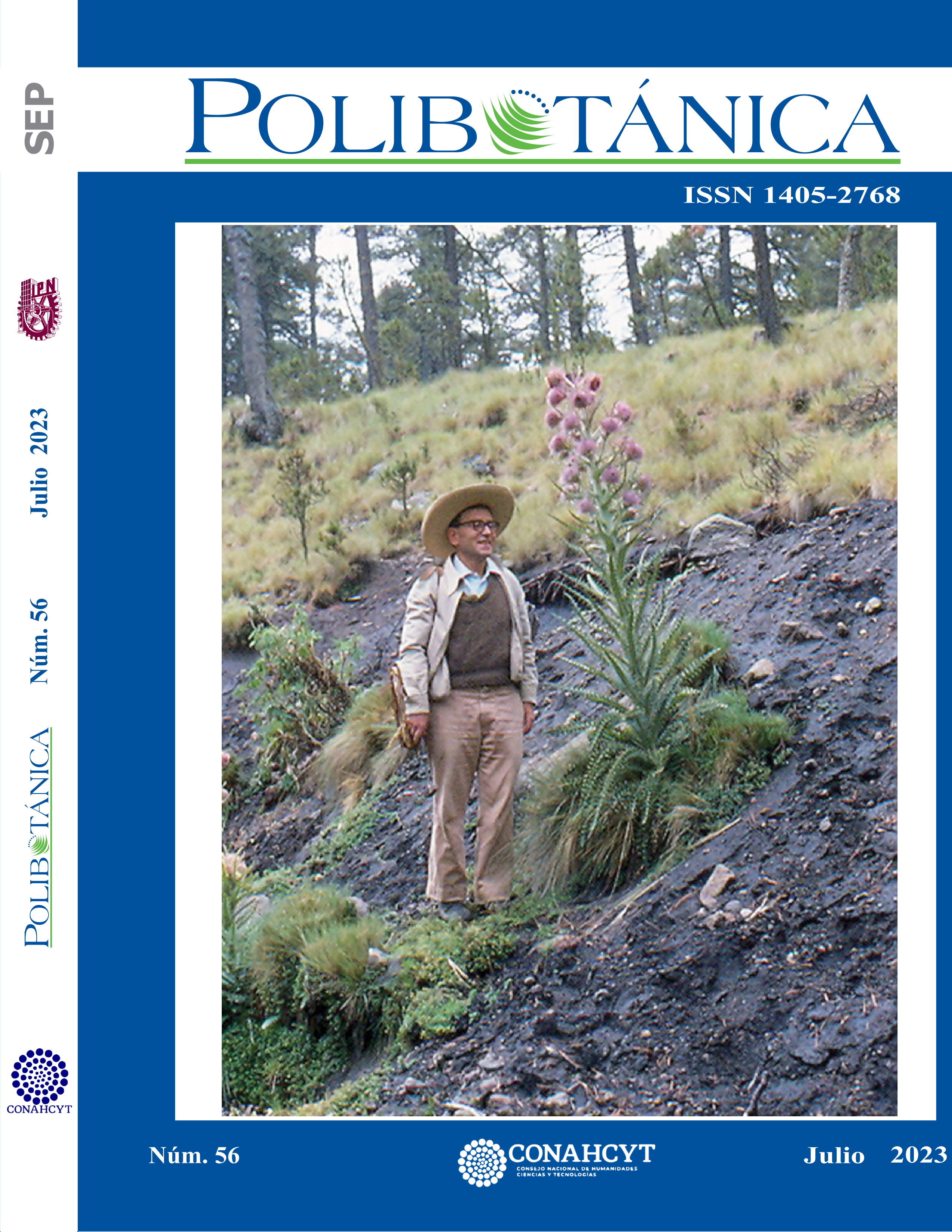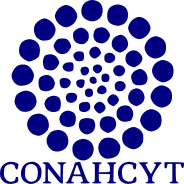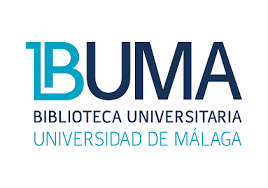Intergenerational transmission of traditional ecological knowledge about medicinal plants in a riverine community of the Brazilian Amazon
DOI:
https://doi.org/10.18387/polibotanica.56.16Palavras-chave:
Cultural transmission, Ethnobotany, Ethnoknowledge, Intergenerational knowledge, Local medical systemsResumo
Local populations may gradually lose the Traditional Ecological Knowledge (TEK), which mainly affects younger generations. Knowing the variables involved in TEK transmission supports strategies to maintain the local medical systems. Based on this, this article investigates: How does the intergenerational transmission of TEK about medicinal plants occur for a traditional riverine community in the Brazilian Amazon? From an intentional non-probabilistic sampling, 43 local residents in the Vila Franca community (Tapajós–Arapiuns Extractive Reserve, Brazilian Amazon) were interviewed, in order to assess the modes of cultural transmission and the transmitters of knowledge. The knowledge about medicinal plants in the community is equally influenced by vertical, horizontal and oblique transmissions. No significant differences were observed among age categories, as well as between men and women. The categories ‘mothers’ and ‘women who work with natural remedies’ are the main transmitters of knowledge, highlighting the influence of familial and extrafamilial relationships in this process. Knowledge about medicinal plants in Vila Franca is strongly influenced by familial and extrafamilial relationships, as through the natural remedies project.
Referências
Albuquerque, U. P., Lucena, R. F. P., & Cunha, L. V. F. C. (Orgs.). (2010). Métodos e Técnicas na Pesquisa Etnobiológica e Etnoecológica. Nupeea.
Amorozo, M. C. M., & Gély, A. (1988). Uso de plantas medicinais por caboclos do Baixo Amazonas, Barcarena, PA, Brasil. Boletim do Museu Paraense Emílio Goeldi, Série Botânica, 4, 47–131.
Arruda, J. C., Silva, C. J., Sander, N. L., & Pulido, M. T. (2018). Conhecimento ecológico tradicional da ictiofauna pelos quilombolas no Alto Guaporé, Mato Grosso, Amazônia meridional, Brasil. Boletim do Museu Paraense Emílio Goeldi, Ciências Humanas, 13, 315–329. https://doi.org/10.1590/1981.81222018000200004
Bailey, K. (1994). Methods of Social Research (4th ed.). The Free Press.
Berkes, F. (2008). Sacred Ecology, 2th ed. Routledge.
Bingeman, K. (2001). Women’s participation in forest management decisions in the Upper Kullu valley, Himachal Pradesh, India. Himalaya, 21, 53–61.
Brito, C. C., Ferreira-Júnior, W. S., Albuquerque, U. P., Ramos, M. A., Silva, T. C., Costa-Neto, E. M., & Medeiros, P. M. (2019). The role of kinship in knowledge about medicinal plants: evidence for context-dependent model-based biases in cultural transmission? Acta Botanica Brasilica, 33, 370–375. https://doi.org/10.1590/0102-33062018abb0340
Brookfield, H., Parsons, H., & Brookfield, M. (2003). Agrodiversity: Learning from Farmers across the World. United Nations University Press.
Calvet-Mir, L., Riu-Bosoms, C., González-Puente, M., Ruiz-Mallén, I., Reyes-García, V., & Molina, J. L. (2016). The transmission of home garden knowledge: safeguarding biocultural diversity and enhancing social-ecological resilience. Society & Natural Resources, 29, 556–571. https://doi.org/10.1080/08941920.2015.1094711
Cámara-Leret, R., Paniagua-Zambrana, N., Svenning, J.-C., Balslev, H., & Macía, M. J. (2014). Geospatial patterns in traditional knowledge serve in assessing intellectual property rights and benefit-sharing in northwest South America. Journal of Ethnopharmacology, 158, 58–65. https://doi.org/10.1016/j.jep.2014.10.009
Cavalli-Sforza, L. L., & Feldman, M. W. (1981). Cultural Transmission and Evolution: A Quantitative Approach. Princeton University Press.
Cavalli-Sforza, L. L., Feldman, M. W., Chen, K. H., & Dornbusch, S. M. (1982). Theory and observation in cultural transmission. Science, 218, 19–27. https://doi.org/10.1126/science.7123211
Couly, C. (2013). Perception des végétaux chez les ribeirinhos d’Amazonie brésilienne. Revue d’Ethnoécologie, 3, 2013. https://doi.org/10.4000/ethnoecologie.1420
Coelho-Ferreira, M. (2009). Medicinal knowledge and plant utilization in an Amazonian coastal community of Marudá, Pará State (Brazil). Journal of Ethnopharmacology, 126, 159–175. https://doi.org/10.1016/j.jep.2009.07.016
Conover, W. J. (1999). Practical Nonparametric Statistics. John Wiley & Sons.
Cristancho, S, & Vining, J. (2009). Perceived intergenerational differences in the transmission of traditional ecological knowledge (TEK) in two indigenous groups from Colombia and Guatemala. Cultural Psychology, 15, 229–254. https://doi.org/10.1177/1354067X09102892
Costa, F. V., Guimarães, M. F. M., & Messias, M. C. T. B. (2021). Gender differences in traditional knowledge of useful plants in a Brazilian community. PLoS ONE, 16, e0253820. https://doi.org/10.1371/journal.pone.0253820
Da Silva, B. J. M., Hage, A. A. P., Silva, E. O., & Rodrigues, A. P. D. (2018). Medicinal plants from the Brazilian Amazonian region and their antileishmanial activity: a review. Journal of Integrative Medicine, 16, 211–222. https://doi.org/10.1016/j.joim.2018.04.004
Doyle, B. J., Asiala, C. M., & Fernández, D. M. (2016). Relative importance and knowledge distribution of medicinal plants in a Kichwa community in the Ecuadorian Amazon. Ethnobiology Letters, 8, 1–14. https://doi.org/10.14237/ebl.8.1.2017.777
Eyssartier, C., Ladio, A. H., & Lozada, M. (2008). Cultural transmission of traditional knowledge in two populations of north-western Patagonia. Journal of Ethnobiology and Ethnomedicine, 4, Article 25. https://doi.org/10.1186/1746-4269-4-25
Gómez-Baggethun, E., & Reyes-García, V. (2013). Reinterpreting change in traditional ecological knowledge. Human Ecology, 41, 643–647. https://doi.org/10.1007/s10745-013-9577-9
Haselmair, R., Pirker, H., Kuhnm, E., & Vogl, C. R. (2014). Personal networks: a tool for gaining insight into the transmission of knowledge about food and medicinal plants among Tyrolean (Austrian) migrants in Australia, Brazil and Peru. Journal of Ethnobiology and Ethnomedicine, 10, Article 1. https://doi.org/10.1186/1746-4269-10-1
Hewlett, B., Silvestri, A., & Guglielmino, C. (2002). Semes and genes in Africa. Current Anthropology, 43, 313–321. https://doi.org/10.1086/339379
Hosen, N., Nakamura, H., & Hamzah, A. (2020). Adaptation to climate change: does traditional ecological knowledge hold the key? Sustainability, 12, 676. https://doi.org/10.3390/su12020676
Instituto Chico Mendes de Conservação da Biodiversidade. (2014). Plano de Manejo da Reserva Extrativista Tapajós–Arapiuns. ICMBio. https://www.gov.br/icmbio/pt-br/assuntos/biodiversidade/unidade-de-conservacao/unidades-de-biomas/amazonia/lista-de-ucs/resex-tapajos/arquivos/resex_tapajos_arapiuns__pm_vol1.pdf
Laland, K. N. (2004). Social learning trategies. Animal Learning & Behavior, 32, 4–14 https://doi.org/10.3758/BF03196002
Mcmillen, I. H., Ticktin, T., & Springer, H. K. (2017). The future is behind us: traditional ecological knowledge and resilience over time on Hawai’i island. Regional Environmental Change, 17, 579–592. https://doi.org/10.1007/s10113-016-1032-1
Menendez-Baceta, G., Aceituno-Mata, L., Reyes-García, V., Tardío, J., Salpeteur, M., & Pardo-de-Santayana, M. (2015). The importance of cultural factors in the distribution of medicinal plant knowledge: a case study in four Basque regions. Journal of Ethnopharmacology, 161, 116–127. https://doi.org/10.1016/j.jep.2014.12.007
Mesoudi, A. (2011). Cultural Evolution: How Darwinian Theory Can Explain Human Culture & Synthesize the Social Sciences. The University of Chicago Press.
Milles, M. B., & Huberman, M. A. (1984). Qualitative Data Analysis: A Sourcebook of New Methods. Sage Publications.
Morais, F. F., Morais, R. F., & Silva, C. J. (2009). Conhecimento ecológico tradicional sobre plantas cultivadas pelos pescadores da comunidade Estirão Comprido, Pantanal matogrossense, Brasil. Boletim do Museu Paraense Emílio Goeldi, Ciências Humanas, 4, 277–294. https://doi.org/10.1590/S1981-81222009000200005
Morais, R. F., Serrano, C. S., & Morais, F. F. (2015). Conhecimento ecológico tradicional da comunidade de Limpo Grande sobre a vegetação, Várzea Grande, Mato Grosso, Brasil. Boletim do Museu Paraense Emílio Goeldi, Ciências Humanas, 10, 65–83. https://doi.org/10.1590/1981-81222015000100004
Mota, M. R. L., Lauer-Leite, I. D., & Novais, J. S. (2021). Distribution of traditional ecological knowledge about medicinal plants in an Amazonian community. Etnobiología, 19, 29–40.
Muller-Schwarze, N. (2006). Antes and hoy día: plant knowledge and categorization as adaptations to life in Panama in the twenty-first century. Economic Botany, 60, 321–334. https://doi.org/10.1663/0013-0001(2006)60[321:AAHDPK]2.0.CO;2
Paniagua-Zambrana, N., Cámara-Leret, R., Bussmann, R. W., & Macía, M. J. (2016). Understanding transmission of traditional knowledge across north-western South America: a cross-cultural study in palms (Arecaceae). Botanical Journal of The Linnean Society, 182, 480–504. https://doi.org/10.1111/boj.12418
Pearce, T., Ford, J., Willox, A. C., & Smit, B. (2015). Inuit traditional ecological knowledge (TEK), subsistence hunting and adaptation to climate change in the Canadian Arctic. Arctic, 68, 233–245. https://doi.org/10.14430/arctic4475
Projeto Saúde e Alegria. (2012). Prazer em Conhecer Vila Franca: O Encontro dos Encontros. CEAPS–Projeto Saúde e Alegria. https://saudeealegria.org.br/wp-content/uploads/2020/01/Cartilha-Vila-Franca-1.pdf
Rodrigues, E. (2006). Plants and animals utilized as medicines in the Jaú National Park (JNP), Brazilian Amazon. Phytotherapy Research, 20, 378–91. https://doi.org/10.1002/ptr.1866
Roersch, C. M. F. B. (2010). Piper umbellatum L.: a comparative cross-cultural analysis of its medicinal uses and an ethnopharmacological evaluation. Journal of Ethnopharmacology, 131, 522–537. https://doi.org/10.1016/j.jep.2010.07.045
Ruiz-Mallén, I., & Corbera, E. (2013). Community-based conservation and traditional ecological knowledge: Implications for socio-ecological resilience. Ecology & Society, 18, 12. https://doi.org/10.5751/ES-05867-180412
Saltos, R. V. A., Vásquez, T. E. R., Lazo, J. A., Banguera, D. V., Guayasamín, P. D. R., Vargas, J. K. A., & Peñas, I. V. (2016). The use of medicinal plants by rural populations of the Pastaza province in the Ecuadorian Amazon. Acta Amazonica, 46, 355–366. https://doi.org/10.1590/1809-4392201600305
Sarquis, R. S. F. R., Sarquis, I. R., Sarquis, I. R., Fernandes, C. P., Silva, G. A., Silva, R. B. L., Jardim, M. A. G., Sánchez-Ortíz, B. L., & Carvalho, J. C. T. (2019). The use of medicinal plants in the riverside community of the Mazagão river in the Brazilian Amazon, Amapá, Brazil: ethnobotanical and ethnopharmacological studies. Evidence-based Complementary and Alternative Medicine, 2019, Article ID 6087509. https://doi.org/10.1155/2019/6087509
Soldati, G. T., Hanazaki, N., Crivos, M., & Albuquerque, U. P. (2015). Does environmental instability favor the production and horizontal transmission of knowledge regarding medicinal plants? A study in Southeast Brazil. PLoS ONE, 10, e0126389. https://doi.org/10.1371/journal.pone.0126389
Soldati, G. T. (2016). Local or traditional knowledge transmission and natural resource use. In U. P. Albuquerque & R. R. N. Alves (Eds.). Introduction to Ethnobiology (pp. 235-238). Springer. https://doi.org/10.1007/978-3-319-28155-1_34
Stori, F. T., Peres, C. M., Turra, A., & Pressey, R. L. (2019). Traditional ecological knowledge supports ecosystem-based management in disturbed coastal marine social-ecological systems. Frontiers in Marine Science, 6, Article 571. https://doi.org/10.3389/fmars.2019.00571
Turreira-Garcia, N., Theilade, I., Meilby, H., & Sorensen, M. (2015). Wild edible plant knowledge, distribution and transmission: a case study of the Achí Mayans of Guatemala. Journal of Ethnobiology and Ethnomedicine, 11, 52. https://doi.org/10.1186/s13002-015-0024-4
Vásquez, S. P. F., Mendonça, M. S., & Noda, S. N. (2014). Etnobotânica de plantas medicinais em comunidades ribeirinhas do Município de Manacapuru, Amazonas, Brasil. Acta Amazonica, 44, 457–472. https://doi.org/10.1590/1809-4392201400423
Downloads
Publicado
Edição
Seção
Licença

Polibotánica por Departamento de Botánica de la Escuela Nacional de Ciencias Biológicas del Instituto Politécnico Nacional se distribuye bajo una Licencia Creative Commons Atribución-NoComercial-CompartirIgual 4.0 Internacional.




















